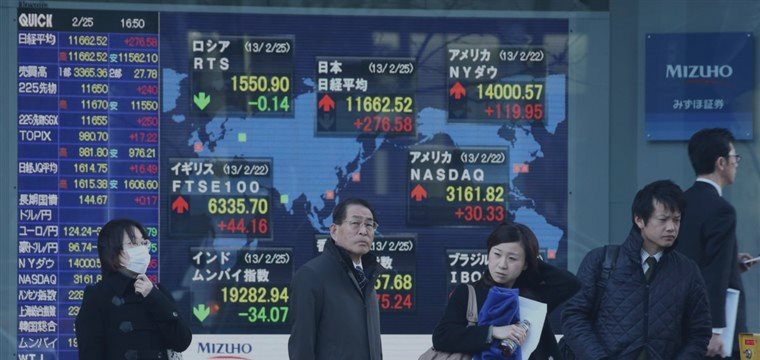
Rising copper and oil prices fuelled Asian bourses on Wednesday; fears over Greece's future retreated. Energy stocks around the region rallied after the price of Brent crude climbed nearly 6 per cent on Tuesday, a fourth straight advance that helped inspire the S&P 500 to a gain of 1.4 per cent in New York, says Financial Times.
Brent retreated 0.5 per cent to $57.60 a barrel in the Asian session. The price of copper continued to rise, adding 0.8 per cent after climbing 3.7 per cent overnight.
Hong Kong’s Hang Seng index added 0.8 per cent and South Korea’s Kospi climbed 0.7 per cent.
Japan’s
Nikkei 225 rose 2.2 per cent — its largest daily gain in six weeks.
In Tokyo, shares in Mitsubishi UFJ jumped 6.4 per cent after the bank posted an 18 per cent rise in net profits for the first nine months of the year. The Japanese financial sector was up 2.9 per cent.
New data showed monthly cash earnings in Japan rose for a 10th straight month in December, but the 1.6 per cent gain versus a year ago was largely based on bonuses rather than on sustainable wage growth.
In Australia, the equity rally continued into a 10th straight session. The S&P/ASX 200, rose another 1.2 per cent after closing on Tuesday at 6,5-year high, with mining shares up 4 per cent.
The Reserve Bank of Australia burnished sentiment by cutting benchmark interest rates to a new record low of 2.25 per cent on Tuesday, Financial Times reports. A number of analysts expect further cuts by May.
The Aussie, however, did a complete turnround overnight. The local currency lost 2 per cent against the US dollar after the RBA cut rates, but made up the losses as oil and copper prices jumped.
In New Zealand, the Kiwi dollar rose 0.4 per cent — a third straight gain.
Overnight, the FTSE Eurofirst 300 closed 0.8 per cent higher. Greek stocks were the best performers as the ATG index jumped 11.3 per cent, led by a rebound for banks. Athens’ 10-year implied borrowing cost fell the most since 2012 as it eased back below 10 per cent.
Greece’s new government said it would abandon
its call for half the country’s debt to be written off and would instead
request a “menu of debt swaps” to ease its burden. This highly improved market sentiment.


